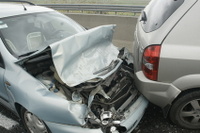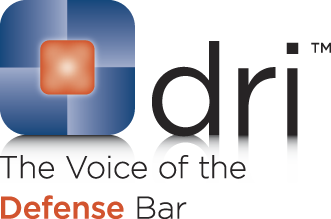A local insurance adjuster asks whether the “made-whole” doctrine applies in Nevada in the auto subrogation context. This is one more great question the that is addressed by the Nevada Law Blogs. However, as you will see, the answer is tremendously confusing.
In 2005, the Nevada Supreme Court enthusiastically embraced the concept of the made-whole doctrine. The case of Canfora v. Coast Hotels & Casinos, Inc., 121 Nev. 771, 121 P.3d 599 (2005) was a fight as to how much the Plaintiff’s employer’s health care trust would get of settlement that the injured plaintiff had negotiated with the tortfeasor.
The Court describes the made-whole doctrine as “’a general equitable principle of insurance law’ that prevents an insurance company from enforcing its subrogation rights before the insured has been fully reimbursed for their losses.” 121 P.2d at 604. The Court explains that the doctrine limits an insurance plan’s subrogation rights where an insured has not received compensation for his total loss. Id. quoting Cagle v. Bruner, 112 F.3d 1510, 1521 (11th Cir. 1997).
However, after providing its definition of the made-whole doctrine, the court admits that the doctrine has no application in Canfora’s case because the health policy specifically overrode the doctrine. So the question remains, are the Canfora Court’s words anything more than dicta? Does this doctrine apply in a property damage situation? And what if there is insufficient money to go around? To those questions, the Court gives no answers.
But wait! There is an insurance regulation passed in 1996 that addresses the subject in an auto context. Maybe that will clear things up. That regulation says:
NAC 686A.680 Standards applicable to insurers under automobile policies. (NRS 679B.130, 686A.015)
4. An insurer shall, upon the claimant’s request, include the first-party claimant’s deductible, if any, in subrogation demands. A subrogation recovery must be shared on a proportionate basis with the first-party claimant, unless the deductible amount has been otherwise recovered. No deduction for expenses may be made from the deductible recovery unless an outside attorney is retained to collect the recovery. The deduction may then be for no more than a pro rata share of the allocated loss adjustment expense.
Regretfully, the regulation raises almost as many questions as it answers. We know from the case LINKED HERE that an insurance company’s subrogation release does not prevent an insured from seeking his or her own recovery for any uninsured damages such as a deductible, loss of use and diminution of value. If the insured specifically asks his or her insurance company to represent his interest and the insurance company is forced to sue, must the insurance company represent the insured? What if the insured never asks? Is the insured on his own to pursue his or her own recovery? If the insured asks for representation, must the company make its insured whole? If there is a made-whole obligation, is the subrogation attorney forced to represent the insured as well, by default? What is an insurance company to do when the tortfeasor’s PD liability limits aren’t enough to pay back both the insured and the insurance company? Is it okay to split the recovery pro-rata? Or must the insurance company make the insured whole regarding the deductible as suggested in the Canfora case? If the first-party insurance company pays back the deductible to its insured, can the tortfeasor’s company apply a credit for that amount against any recovery sought by the first party insured?
The purpose behind the made whole doctrine makes a lot more sense in the bodily injury context than it does in the property damage setting. Where a bodily injury is involved, the insured is motivated to take the lead in seeking a recovery against the tortfeasor. However, in the context of a property claim, the insurance company that has paid its insured a physical damage recovery has stepped forward and done most of the work to get the car fixed. Should it then be obliged to pursue its insured’s rights along with its own? And if it does, should it be prevented from recovering its payout if the insured wants to recovery uninsured losses for loss of use or diminution of value?
No easy answers here. Unless and until the Court make a clearly precedential decision and / or the regulations get updated, these questions and conflicts will persist. Insurance companies on either side of these transactions will continue to face these miserable unknowns.
If you have questions about the made-whole doctrine in Nevada, please contact Mike at 702-240-6060×114 and he will do his best to guide you through the morass.
 Follow
Follow Email
Email



